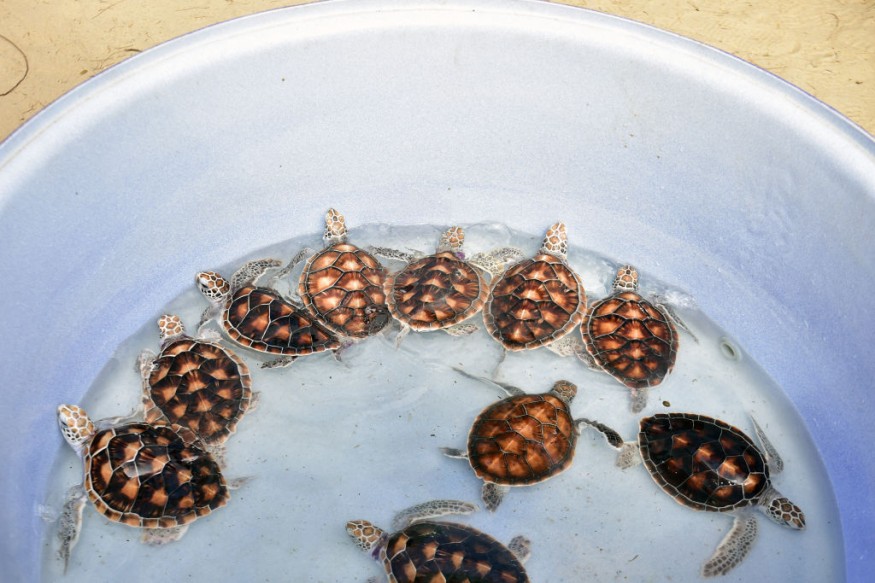Smuggled turtles were found inside the bag of a Chinese woman who was attempting to cross a lake along the United States-Canada border recently.
Border Patrol agents arrested the woman in the US side of the border where they found a total of 29 eastern box turtles (Terrapene carolina carolina). The suspected wildlife trafficker was crossing Vermont Lake into Canada by using a kayak in broad daylight.
The smuggled turtle species is native to the Eastern US but the recovered animals from the suspect's bag were sold from the "Chinese black market," the border agents reported. This is not the first instance local authorities arrested a person over charges of wildlife trafficking along the US-Canada border.
In 2018, a man attempted to smuggle Burmese python snakes on a bus from Montreal to New York City.
Smuggled Turtles Found in Woman's Bag

In the morning of Friday, June 28, Border Patrol agents arrested a woman from China, named Wan Yee Ng, at an Airbnb accommodation in the town of Canaan in Essex County, Vermont. The suspect was attempting to board an inflatable kayak on Lake Wallace while carrying a duffel bag, where the agents found the smuggled turtles. All of the smuggled eastern box turtles are still alive, but they were wrapped in socks.
According to a local Chinese media outlet, the protected turtle species are being sold on the Chinese black market for $1,000 each, based on a cited statement from the Border Patrol agents.
In addition to the arrested individual, the border authorities were also notified by the Royal Canadian Mounted Police that two other people were involved in the turtle smuggling incident in the area.
Wildlife Trafficking
The eastern box turtle species can be found not only in the Eastern US but also across North America, as well as in the eastern Gulf coast of Mexico and the Yucatan Peninsula in Central America. According to the Smithsonian's National Zoo & Conservation Biology Institute, eastern box turtles have a conservation status of "vulnerable." This means that the species is not endangered but is facing significant existential risks.
In their natural habitats, turtles and other wild animals are threatened not only by natural factors but also by human activities, including wildlife trafficking.
For several decades, wildlife trafficking has been a major global problem that impacts wild animals in their natural habitats. This criminal act involves poaching, wildlife smuggling, illegal wildlife trade, or unauthorized collection of wildlife, according to the United Nations Office on Drugs and Crime (UNODC).
According to multiple studies and conservation reports, approximately over 350 million animals are trafficked worldwide annually, in the context of animal trafficking and poaching. This wildlife crime has persisted because the demand for animal products, including their body parts, has continued. While the network is global, wild animals in Africa are suffering the most, according to conservation experts.
© 2025 NatureWorldNews.com All rights reserved. Do not reproduce without permission.





